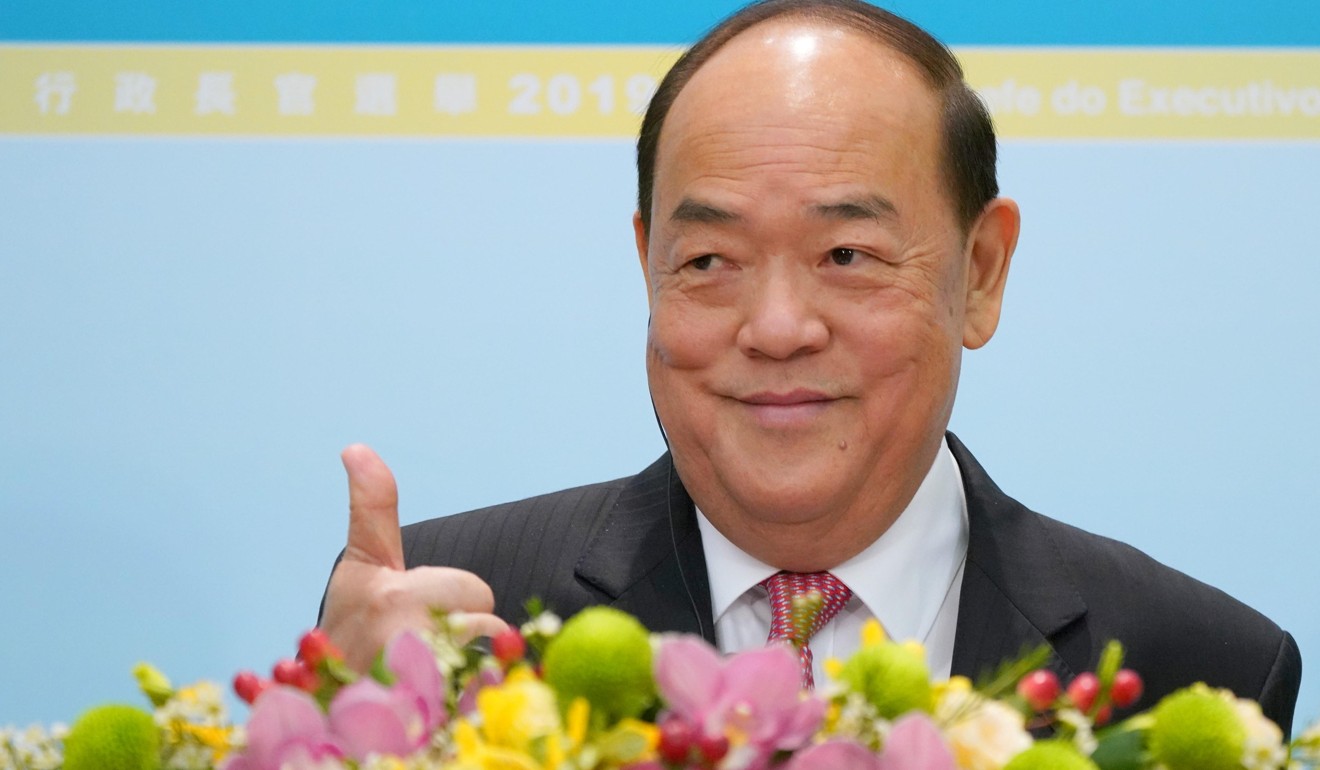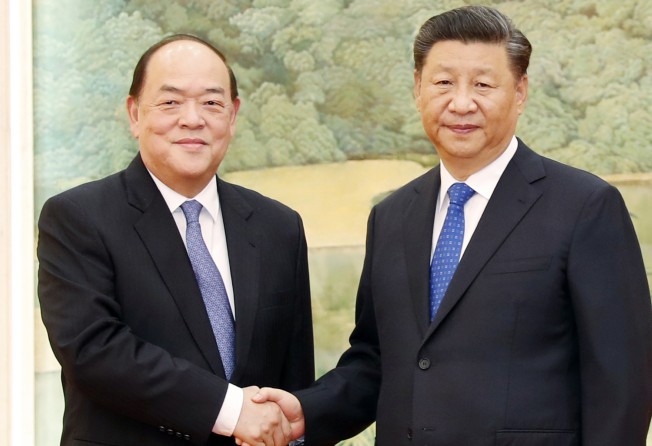
Beijing praises ‘harmonious and stable’ Macau at appointment of new leader Ho Iat-seng, sparking comparisons with restive Hong Kong
- President says conditions in the casino hub prove ‘one country, two systems’ can work
- Observers note contrast with nearby city, where anti-government unrest has challenged Beijing’s authority

President Xi Jinping has praised Macau’s prosperity, stability and harmony as the central government on Wednesday appointed Ho Iat-seng as the casino hub’s next leader, saying it proved the principle of “one country, two systems” could work.
Xi also expressed hopes that Ho, elected unopposed and to be sworn in on December 20, would “stand high and look far” to grasp where the city fits into the national development strategy.
Observers said the comments from Xi, as well as words from Premier Li Keqiang, reflected Beijing’s expectations not just of Macau but also of Hong Kong, which has been rocked by three months of anti-government protests which have challenged the central government’s authority.
Meeting Ho in Beijing, Xi said one country, two systems – under which both former European colonies are ruled from the capital but guaranteed a measure of political freedom – had been fully implemented since the city’s handover from Portugal to China in 1999.

“The Macau government has united various sectors in fully and accurately understanding and implementing the principle of one country two systems, resolutely safeguarding the authority of the constitution and the Basic Law,” Xi said. “The economy has been rapidly growing, with people’s livelihood being continuously improved and society being harmonious and stable.”
He added that this showed the principle was “completely feasible, and can be achieved and well received with people”.
Ho, a businessman and former president of Macau’s Legislative Assembly, got 392 of 400 votes in a choreographed ceremony on August 25. There were seven blank votes and an invalid one.
On Wednesday afternoon, Xi said the high vote share showed wide local approval for Ho, expressing confidence that he would lead the city to a new stage of development.
[Macau] society has been harmonious and stable, and the exchanges and cooperation with the mainland are deepening and strengthening
Li met Ho in the morning, after Vice-Premier Han Zheng formally announced the new appointment.
“[Macau] society has been harmonious and stable, and the exchanges and cooperation with the mainland are deepening and strengthening,” Li said.
“This can be said to be the result of the united efforts of the chief executives and the governments of all terms, and all walks of life in Macau, which is also inseparable from the strong support from the central government and the country.”
Baptist University journalism lecturer Bruce Lui Ping-kuen, a veteran China-watcher, said Beijing was taking the chance to reflect its hopes for Hong Kong. “The praises for Macau are the deficiencies of Hong Kong,” he said. “Macau is always a successful model in Beijing’s eyes, with its stable society and economy deeply integrated with the mainland.”
Johnny Lau Yui-siu, a Hong Kong-based observer, agreed, saying recent unrest in Hong Kong – sparked by a piece of extradition legislation which the government has already pledged to withdraw – underlined the importance to Beijing of stability and harmony in Macau.
Pro-democracy Hong Kong legislator James To Kun-sun said there was a lesson for Chief Executive Carrie Lam Cheng Yuet-ngor in Xi’s exhortation to “stand high and look far”.
To said: “Macau’s influence in the world is limited. Hong Kong’s leader has even more pressing needs to be addressed.”
Li Xiaobing, associate law professor at Nankai University, Tianjin, said the two cities could not be directly compared as Beijing has different roles in mind for them. But he said the need to uphold the authority of the national constitution were the same in both places, and Macau had done a better job on that front by passing national security legislation.